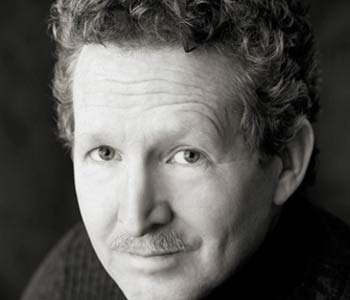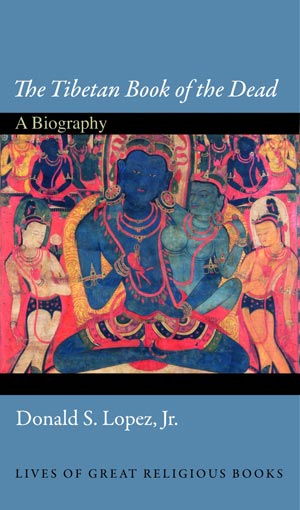
Princeton University Press has started a new series entitled “Lives of Great Religious Books,” and my book is one of the three inaugural volumes.
The idea behind the series is that books have lives, that in addition to the particular time and place of their composition, they also move through time and across space, where they meet unexpected fates and fortunes. Scholars call this the “reception history” of a text.
Princeton has chosen some of the most famous religious texts from around the world and asked a scholar to recount the life of that book for a general audience. I was asked to write about The Tibetan Book of the Dead, certainly the most famous Tibetan work in the world and perhaps the world’s most famous Buddhist text.
The Tibetan Book of the Dead has had a rather strange life. Despite its great fame, it is not famous in Tibet.
In 1919, an American named Walter Evans-Wentz, who was traveling in India at the time, purchased a set of Tibetan mortuary texts from a British Army major who had recently returned from Tibet. Evans-Wentz could not read Tibetan so he took them to the English teacher at the local boarding school for boys, who translated a selection of the texts. Evans-Wentz then provided his own preface, introduction, notes, and appendices (which together outweigh the translation itself) and called it The Tibetan Book of the Dead. It was published by Oxford University Press in 1927 and has gone on to sell over a half million copies.
Evans-Wentz was a Theosophist, and in the book I discuss how he read the translation through a particular lens of American spiritualism, one that obscured, and in some cases misrepresented, the meaning of the Tibetan text.
I then go on to talk about the book’s remarkable persistence and its place in a kind of New Age canon that developed in the 1960s and that continues to the present day. The Tibetan Book of the Dead was important to Timothy Leary, for example, inspiring his own book The Psychedelic Experience.
“I wanted to try to understand The Tibetan Book of the Dead not so much as an odd appropriation of a Tibetan text, which it certainly is, but rather as an important work in the history of American spiritualism.”
As someone who went to college in the 1970s and was interested in “Eastern Philosophy” as it used to be called, I read The Tibetan Book of the Dead and assumed it was a classic Tibetan text. When I became a student of Tibetan Buddhism, I learned something about the Tibetan works upon which it is based and noticed the significant discrepancy between those works in Tibetan and how they are represented by Evans-Wentz.
I explored this topic in an earlier book on the Western fascination with Tibet, published in 1998, Prisoners of Shangri-La. For the present Princeton volume, I wanted to return to the story in more detail—not in order to debunk what Evans-Wentz did, which is easy enough to do, but to look at the book from another angle.
I wanted to try to understand The Tibetan Book of the Dead not so much as an odd appropriation of a Tibetan text, which it certainly is, but rather as an important work in the history of American spiritualism.
We tend to forget how important the practice of spiritualism, in which one contacts the spirits of the dead, once was in America, especially after the great loss of life in two great wars, the Civil War and the First World War.
Madame Blavatsky, the founder of the Theosophical Society, was a medium herself. She believed that the mystical traditions of all the world’s religions originated from a single root, which she called Theosophy, the “knowledge of God.” These traditions were disseminated throughout history by enlightened masters called mahatmas or “great souls,” who in recent centuries had congregated in Tibet. This, along with the fact that the books dealt with the fate of departed souls, was likely one reason for Evans-Wentz’s interest in the Tibetan texts he purchased.
Much of my book is devoted to the Tibetan texts themselves, their own fascinating history, and the Buddhist teachings they contain concerning death, the “intermediate state” between death and rebirth, and the process of rebirth itself.
In Tibetan Buddhism, this intermediate state can last from one instant to forty-nine days, and it is considered a time of both great opportunity and great danger. The Tibetan texts provide advice on how to navigate it in order to transform rebirth into enlightenment.
Beyond that, however, my book takes up the question of what happens when religious texts move across time and across cultures. In particular, I explore how religious texts gain authority, how they become canonical, how they become somehow sacred.
In the case of The Tibetan Book of the Dead, Evans-Wentz made use of both the apparent antiquity of the Tibetan texts as well as the magic and mystery surrounding Tibet in order to invest his own Theosophical views with a certain antiquity and with the exoticism of Tibet, despite the fact that those views are not present in the original texts. But rather than see this as a case of fraud, it is more important, and more useful, to see it as a case study, with lessons that might be applied to any work that is deemed sacred by a particular tradition.
In Tibet, there is a genre of books called terma, which means “treasure” in Tibetan. According to Tibetan Buddhist belief, in the eighth century, a great Indian master named Padmasambhava came to Tibet to help establish Buddhism there. His stay was short and there was much for the Tibetans to learn. He therefore wrote hundreds of works and buried them all over Tibet—in mountains, in pillars, at the bottom of lakes—so that they could be discovered at the appropriate moment in the future. He also made prophecies about when, and by whom, they would be found.
The Tibetan texts that Evans-Wentz purchased belong to that genre of “treasures” and were unearthed in the fourteenth century. Scholars of Tibetan Buddhism, and some Tibetan Buddhists themselves, regard these works as spurious, as latter day compositions that are then buried by their author to be immediately unearthed, gaining legitimacy from the claim that they were written by Padmasambhava centuries earlier.
In conjunction with telling this story, I also tell the story of another famous case of buried texts: Joseph Smith’s discovery in 1823 of engraved plates unearthed from a hill in upstate New York. Smith would later translate these plates into The Book of Mormon. As unlikely as it might seem, there are a number of interesting parallels between The Tibetan Book of the Dead and The Book of Mormon.
“I am sometimes saddened to see that people who are interested in Buddhism think that they must renounce their historical consciousness in order to appreciate Buddhist texts.”
I wrote with three audiences in mind.
The first is those people who have heard of The Tibetan Book of the Dead, as I guess almost everyone has, but who have never read it and would like to learn something about it and its history. For them, I devote two chapters to the Buddhist doctrines and practices that appear in the Tibetan texts that Evans-Wentz purchased.
The second audience is those people interested in the history of religion in America and who might not be aware of the very American nature of Evans-Wentz’s book and the role it has played in the formation of American spirituality. For them, I describe Evans-Wentz’s earlier work on Celtic folklore as further evidence of his Theosophical convictions. I also describe a kind of lineage of American spirituality that includes the Fox Sisters (the most famous American mediums of the nineteenth century), Madame Blavatsky, and Walter Evans-Wentz.
The third audience is those people who have read The Tibetan Book of the Dead and have drawn inspiration from it, either as a work of Buddhist practice or as a work to provide solace to the dying. These readers may not be aware of the circumstances of its creation and of the fact that the book is more famous in America than it ever was in Tibet.
I wrote the book with this last audience in mind—but not because I want to cast aspersions on a book that they love or because I wanted to disillusion them.
I am sometimes saddened to see that people who are interested in Buddhism think that they must renounce their historical consciousness in order to appreciate Buddhist texts.
What I hope readers might understand is that The Tibetan Book of the Dead, like all religious texts, has a history and that knowing that history can also be the starting point for the inspiration we draw from it.


Donald S. Lopez, Jr. is the Arthur E. Link Distinguished University Professor of Buddhist and Tibetan Studies at the University of Michigan, where he serves as chair of the Department of Asian Languages and Cultures and as chair of the Michigan Society of Fellows. Besides the books featured in his two Rorotoko interviews, he is the author of The Story of Buddhism, Prisoners of Shangri-La, The Madman’s Middle Way, and others. Donald Lopez was elected to the American Academy of Arts and Sciences in 2000. He is currently completing a book on the European encounter with the Buddha.